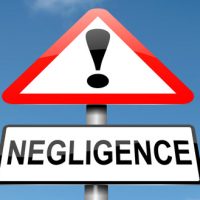What Is Negligent Security?

When we step onto someone else’s property, as a visitor or customer, we expect to have some degree of safety. While slips and falls and dog bites are common safety issues on other people’s property, sometimes crimes can occur as well.
For example, you may have been leaving your apartment complex when you were raped in the dark by a stranger. Or maybe you were assaulted when leaving a bar.
These situations fall under negligent security. This is a subsection of premises liability law, and it states that property owners have a duty to keep visitors and customers safe from all hazards, including criminal acts. This is even more important when there is a history of crime in the area.
What this means is that if you suffered injuries due to a robbery, assault, or another incident on someone else’s property, you could possibly recover financial compensation under a negligent security claim.
Reasonable Security
All properties should have reasonable security measures in place. What is considered reasonable may be subjective. This is determined by the location as well as any prior history of crimes in the area. However, some locations are more susceptible to crime than others. They include the following:
- Parking garages and parking lots
- Amusement parks
- Shopping malls
- Nightclubs and bars
- Office buildings
- Banks
- Apartment complexes
- Airports
- Sports stadiums
- Concert venues
Places where children frequent, such as schools, day care centers, and hospitals, should also have adequate security measures in place.
Examples of Negligent Security
Negligent security may be an issue if any of the following are present on the property:
- Broken or nonexistent security cameras
- Untrained security guards or no guards at all
- Broken fencing
- Unlocked gates
- Inadequate lighting
- Blocked emergency exits
Proving Foreseeability
Even if there are any of the above elements on the property at the time that a person is involved in a crime, the victim still needs to prove foreseeability. Foreseeability refers to whether or not a property owner knew about any previous crimes at the property or in the immediate area. If there were previous crimes, such as assaults or robberies or assaults, then there needs to be adequate security in place.
If there were crimes at the property in question in the past, and a property owner did nothing to improve security measures, then the victim could hold them accountable for any future crimes causing damages.
Contact a Personal Injury Attorney Today
Negligent security is something you need to be aware of, whether you own property or you’re a visitor to someone else’s property. People want to feel safe at all times.
If you have been a victim of a crime committed on someone else’s property, you may be able to take legal action. Seek legal help from a Tampa negligent security attorney from Moore Law. We’ll fight your case to the fullest extent of the law. Call 813-510-5400 or fill out the online form to schedule a free consultation.
Source:
silvaconsultants.com/are-you-guilty-negligent-security
